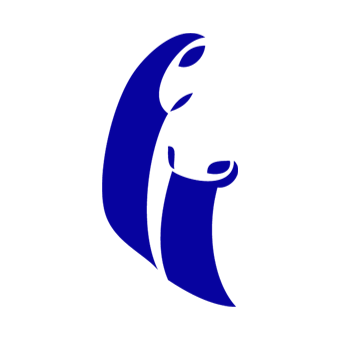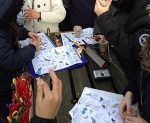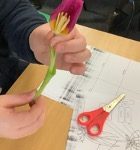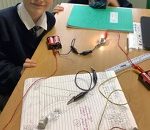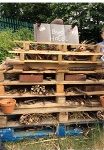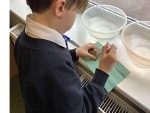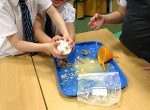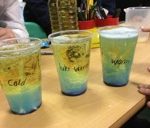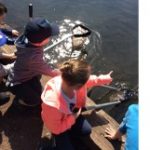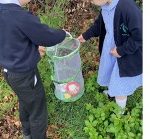Introduction
A high-quality science education provides the foundations for understanding the world through the specific disciplines of biology, chemistry and physics. Science has changed our lives and is vital to the world’s future prosperity, and all pupils should be taught essential aspects of the knowledge, methods, processes and uses of science. Through building up a body of key foundational knowledge and concepts, pupils should be encouraged to recognise the power of rational explanation and develop a sense of excitement and curiosity about natural phenomena. They should be encouraged to understand how science can be used to explain what is occurring, predict how things will behave, and analyse causes.
Aims
The national curriculum for science aims to ensure that all pupils:
- Develop scientific knowledge and conceptual understanding through the specific disciplines of biology, chemistry and physics
- Develop understanding of the nature, processes and methods of science through different types of science enquiries that help them to answer scientific questions about the world around them
- Are equipped with the scientific knowledge required to understand the uses and implications of science, today and for the future. Scientific knowledge and conceptual understanding.
Scientific knowledge and conceptual understanding
The programmes of study describe a sequence of knowledge and concepts. While it is important that pupils make progress, it is also vitally important that they develop a secure understanding of each key block of knowledge and concepts in order to progress to the next stage. Insecure, superficial understanding will not allow genuine progression: pupils may struggle at key points of transition (such as between primary and secondary school), build up serious misconceptions, and/or have significant difficulties in understanding higher-order content. Pupils should be able to describe associated processes and key characteristics in common language, but they should also be familiar with, and use, technical terminology accurately and precisely. They should build up an extended specialist vocabulary. They should also apply their mathematical knowledge to their understanding of science, including collecting, presenting and analysing data. The social and economic implications of science are important but, generally, they are taught most appropriately within the wider school curriculum: teachers will wish to use different contexts to maximise their pupils’ engagement with and motivation to study science.
The nature, processes and methods of science
‘Working scientifically’ specifies the understanding of the nature, processes and methods of science for each year group. It should not be taught as a separate strand. The notes and guidance give examples of how ‘working scientifically’ might be embedded within the content of biology, chemistry and physics, focusing on the key features of scientific enquiry, so that pupils learn to use a variety of approaches to answer relevant scientific questions. These types of scientific enquiry should include: observing over time; pattern seeking; identifying, classifying and grouping; comparative and fair testing (controlled investigations); and researching using secondary sources. Pupils should seek answers to questions through collecting, analysing and presenting data. ‘Working scientifically’ will be developed further at key stages 3 and 4, once pupils have built up sufficient understanding of science to engage meaningfully in more sophisticated discussion of experimental design and control.
Spoken language
The national curriculum for science reflects the importance of spoken language in pupils’ development across the whole curriculum – cognitively, socially and linguistically. The quality and variety of language that pupils hear and speak are key factors in developing their scientific vocabulary and articulating scientific concepts clearly and precisely. They must be assisted in making their thinking clear, both to themselves and others, and teachers should ensure that pupils build secure foundations by using discussion to probe and remedy their misconceptions.
School curriculum
The programmes of study for science are set out year-by-year for key stages 1 and 2. Schools are, however, only required to teach the relevant programme of study by the end of the key stage. Within each key stage, schools therefore have the flexibility to introduce content earlier or later than set out in the programme of study. In addition, schools can introduce key stage content during an earlier key stage if appropriate. All schools are also required to set out their school curriculum for science on a year-by-year basis and make this information available online
Attainment Targets
By the end of each key stage, pupils are expected to know, apply and understand the matters, skills and processes specified in the relevant programme of study. Schools are not required by law to teach the content indicated as being ‘non-statutory’.
Science curriculum planning (Using Rising Stars ‘Switched On Science’)
Due to having mixed aged classes, planning is carried out on a two year cycle to ensure continuity and progression so that children are challenged as they move up through the school. Differentiation is used to ensure all children are able to achieve yet still being given the opportunity to be challenged. We acknowledge that pupils’ achievement is enhanced through lessons that are active, inspiring and that have plenty of opportunity for children to challenge and lead their own learning. To this end we provide pupils with a range of sources of information to find out about the topics being taught.
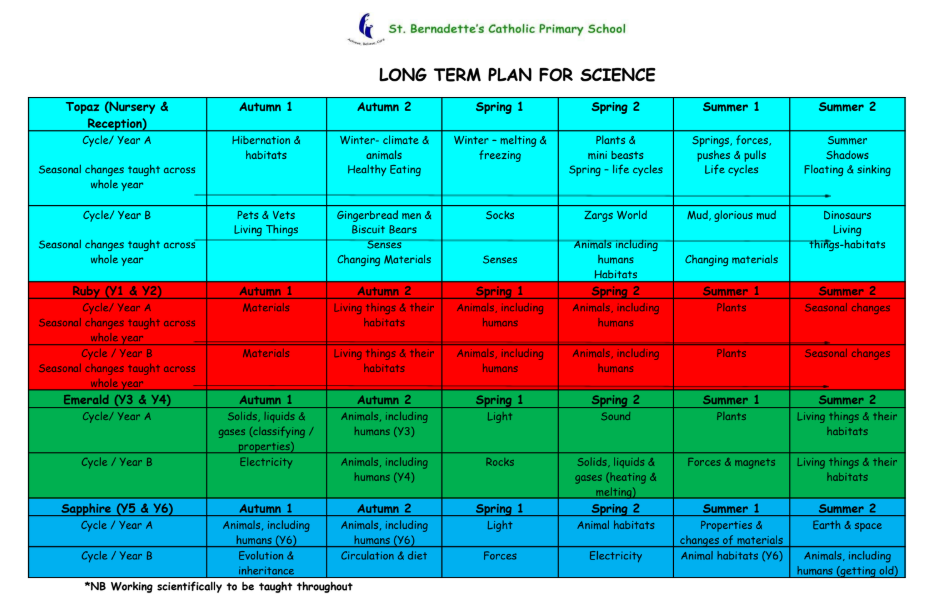
Inclusion
Our teaching of Science forms part of the school ethos to provide a broad and balanced education to all children. To achieve this we provide learning opportunities that match the needs of all children and we take into account the targets set for individual children in their SEN Support Plans (IEPs). Planning, teaching and learning in History, sets high expectations for all children. Work is differentiated through content and by outcome to suit individual needs. It provides opportunities for all children to achieve including: boys and girls, children with SEN, children with disabilities, more able children, and children from all social and cultural backgrounds.
Teachers are aware that children bring to school different experiences, interests and strengths that will influence the way in which they learn. We recognise the fact that in all classes there are children of a variety of abilities and we seek to provide suitable learning opportunities for all children by matching the challenge of the task to the ability of the child.
Resources
The Science lead is responsible for resourcing the Science curriculum. Resources are mostly kept centrally in the science cupboard.
Assessment
At St Bernadette’s assessment for learning (AFL) is integrated in all parts of the teaching and learning process. In addition to these on-going assessments, the ‘Switched on Science’ scheme has half-termly assessments that we use at the end of a unit. These assessments are then used to inform where pupils are in terms of age related expectations, and identify gaps in learning that need to be addressed in the future.
Children’s work also provides evidence of learning and skills acquired. The cross-curricular nature of Science means that children are able to explore themes, ask questions and problem solve through MATHS, ENGLISH, HISTORY and GEOGRAPHY.
Valuing children’s work is vital to their continued motivation, enjoyment and the empowerment of their learning and evidence of skills and understanding can therefore be sourced from a wide range of work – photographs, books, models, writing, art and videos of children’s work are displayed around school, on the website and stored on the server.
Documents
- 1. Rising-Stars-Science-Year-1.pdf pdf9.1 MbNov 15th, 2022
- 2. Rising-Stars-Science-Year-2.pdf pdf9.4 MbNov 15th, 2022
- 3. Rising-Stars-Science-Year-3.pdf pdf8.3 MbNov 15th, 2022
- 4. Rising-Stars-Science-Year-4.pdf pdf12.1 MbNov 15th, 2022
- 5. Rising-Stars-Science-Year-5.pdf pdf7.0 MbNov 15th, 2022
- 6. Rising-Stars-Science-Year-6.pdf pdf11.0 MbNov 15th, 2022
- Long term plan science 2026 pdf73.8 KbFeb 5th, 2026
- Science Cultural Capital.pdf pdf430.1 KbOct 23rd, 2024
- Science Curriculum Objectives for website May 23.pdf pdf241.9 KbJun 5th, 2023
- Science Policy 2022-23.pdf pdf142.7 KbNov 15th, 2022
- Y1/2 Science Home Learning – Healthy Me.pdf pdf1.6 MbNov 15th, 2022
- Y3/4 Science Home Learning – Plants.pdf pdf1021.7 KbNov 15th, 2022
- Y5/6 Science Home Learning – Space.pdf pdf1.2 MbNov 15th, 2022
